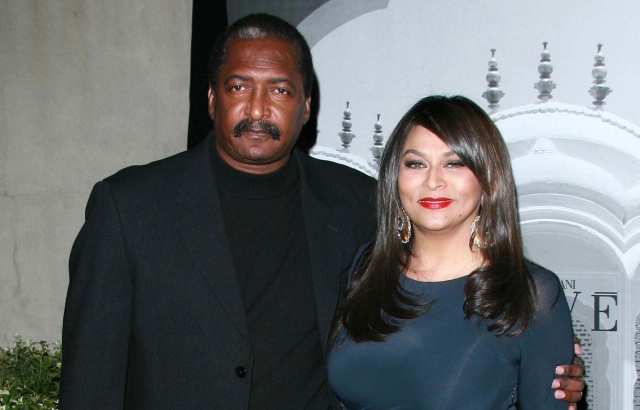Mathew Knowles Speaks Out About Colorism & Thinking Tina Knowles Was “White”


Beyoncé’s father, Mathew Knowles, is apparently working on a book titled “Racism: From the Eyes of a Child” and has come out to talk about the issue of colorism in an interview with Ebony magazine.
Colorism within the brown communities recently has been brought back into the public consciousness after the terrible interview between Amara La Negera and The Breakfast Club. La Negera, an Afro-Latina of Dominican origin. La Negera attempted to talk about the racism and colorism still facing Afro-Latina’s in the Latin American community, only to be asked “if it’s all in her head” by two the male hosts, Charlemagne and Dj Envy.
She spoke on her experience on Love & Hip Hop Miami, where La Negera tried to get help from producer, Elijah “Young Hollywood” Sarraga. Sarraga said he thought La Negra was talented, but she needed to “look a certain way . . . a little bit more Beyoncé, a little less Macy Gray.” Sarraga also called her a “Nutella Queen.”
With this in mind, it was perfect timing for Knowles to speak out his own experiences. In the interview, he talks about growing up in the South and chasing white women because of his own internalized anti-blackness.
“When I was growing up, my mother used to say, “Don’t ever bring no nappy-head Black girl to my house.” In the deep South in the ’50s, ’60s and ’70s, the shade of your Blackness was considered important. So I, unfortunately, grew up hearing that message.
I have a chapter in the book that talks about eroticized rage. I talk about going to therapy and sharing–one day I had a breakthrough–that I used to date mainly White women or very high-complexion Black women that looked White. I actually thought when I met Tina, my former wife, that she was White. Later I found out that she wasn’t, and she was actually very much in-tune with her Blackness.”
Knowles’ introspection about colorism is important because it is an issue that a lot of people within brown and non-white communities do not address openly. It tends to lead to division and arguments about how color and phenotype make you more or less any race, which is a false standard being placed on POC. When you grow up in a white supremacist culture, it is no surprise that you grow up absorbing those ideas of beauty.
That’s the reason the Doll Test is still used to show how young children of color internalize media. Even in communities or institution of color, there is still a continuation of racist ideas. Knowles talks about the paper bag test going on in black schools.
I grew up in a small town and never went to a Black school. I went to Catholic school with White nuns until the eighth grade, when I was one of six kids to integrate Litchfield Junior High that [at the time] had about 700 or 800 students. Then we integrated Gadsden High. At University of Tennessee at Chattanooga, I was one of the first Blacks there. I didn’t go to a Black school until my junior year of college, when I went to Fisk University.
[…]
I was in the last class where they’d take out a brown paper bag, and if you were darker than the bag, you could not get into Fisk.
Knowles is also open about how colorism gives an advantage to black female artists: “When it comes to Black females, who are the people who get their music played on pop radio? Mariah Carey, Rihanna, the female rapper Nicki Minaj, my kids [Beyoncé and Solange], and what do they all have in common?” The answer: they are all lighter skin.
Despite the success of Viola Davis, Lupita, Issa Rae and a handful of other darker skinned black women making their mark, there is still a lack of representation of darker skinned WOC in romantic films. Everyone waxes about how beautiful Lupita is, so why is she never up to be the romantic lead? Why is her first time being a love interest in Black Panther? A movie that would fail the brown paper bag test with flying colors, but an outlier in terms of roles for darker skinned black women.
Tackling colorism means being honest with our biases, how we play into them ourselves and learning to stop.
(via The Washington Post, image: s_bukley / Shutterstock.com)
Want more stories like this? Become a subscriber and support the site!
—The Mary Sue has a strict comment policy that forbids, but is not limited to, personal insults toward anyone, hate speech, and trolling.—
Have a tip we should know? [email protected]
